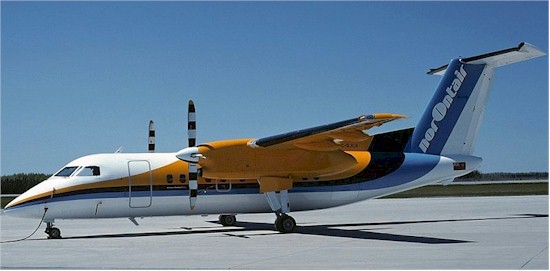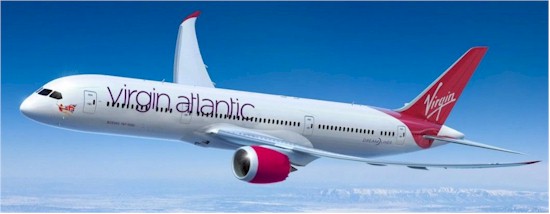|
NorOntair's first foray into air services began October 18, 1971 when it subcontracted flying operations to various airlines including Bradley Air Service (First Air), Austin Airways, Air-Dale and OnAir (taken over by Bearskin Airlines). Air-Dale based in Sault Ste. Marie, was the airline's main operations base. Two de Havilland Dash 8-102 aircraft and six DHC-6-300 Twin Otters were based in Sault Ste. Marie. Two additional Twin Otters were based in Thunder Bay and were operated by Bearskin Airlines crews but painted in full NorOntair colours. In its final years, ONTC bought Air-Dale and operated all the remaining routes until the service was discontinued on March 29, 1996. In 1996, the newly elected government of Premier Mike Harris moved to close down the airline by removing subsidies. However, this had a negative effect on the region's economy over the next several years. NorOntair was the first airline in the world to order and take delivery of the de Havilland Canada Dash 8 Series 100, on October 23, 1984, operated by Air-Dale. The first Dash 8 in commercial service anywhere in the world wore NorOntair colours and was registered C-GJCB. It was number 6 from the assembly line and remained in active service until the closure of the company, flying up to 14 hours a day across Northern Ontario. Source: en.wikipedia.org/wiki/NorOntair |
 |
|
Virgin Plans 100 Percent SAF Trans-Atlantic Flight Virgin Atlantic and Rolls-Royce, have announced a plan to fly a trans-Atlantic flight on 100 percent SAF (sustainable aviation fuel) in November 2023. Rolls-Royce said last month that it has successfully run a Trent 1000 engine on an SAF blend, clearing the way for the demonstration flight in a Boeing 787 for November 28, 2023. Air BP and Virent will supply 60 tons of SAF to support the project. SAF can be produced through seven major chemical pathways and for this demonstration, the fuel will be produced through hydroprocessed esters and fatty acids, known as HEFA. This method typically uses waste vegetable oil, fats and oil residues as feedstocks. The project will also employ the SAK pathway, which yields synthetic kerosene through the Fischer-Tropsch process, using a variety of feedstocks. |
 |
|
SAF, according to Virgin, typically reduces carbon life-cycle emissions by up to 70 percent because credit is given for the carbon already absorbed in the feedstocks. The airline industry is aiming for net-zero emissions in 2050. It has a long way to go. SAF currently represents less than 0.1 percent Source: AVWeb.com |
